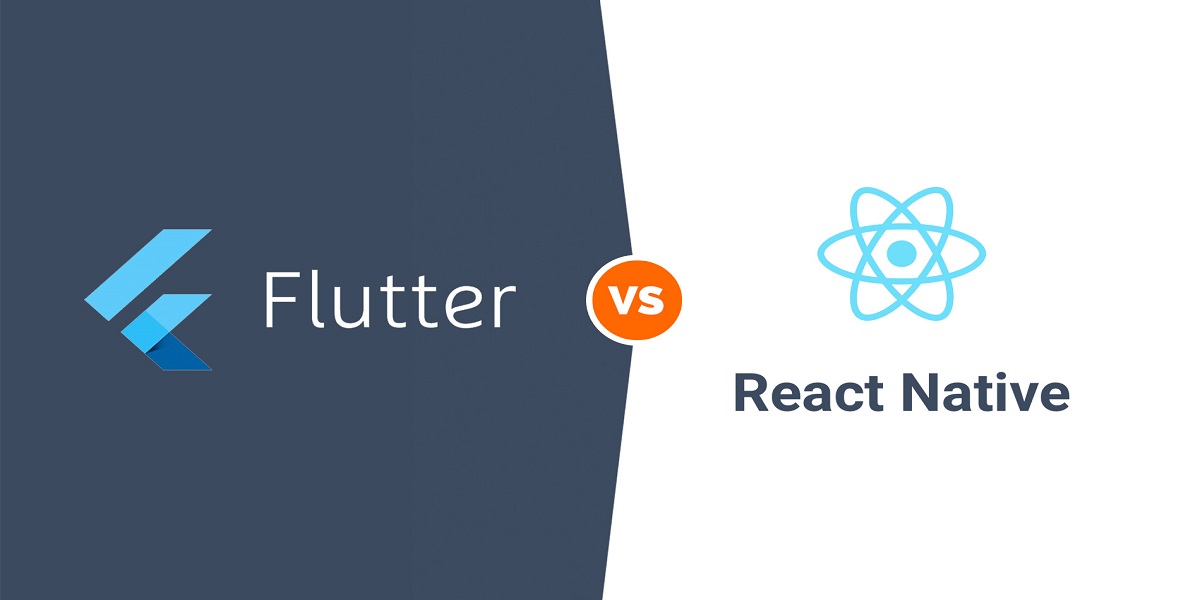Flutter vs React Native - Which is The Best Platform For cross-platform App Development
- By Venkatesh
- 02-04-2021
- Mobile App Development

In 2020 React Native and Flutter dominated the whole cross-platform app development market. With React Native taking 42% and Flutter coming second with 39% of the total market share. This brings out the question of which one is the best of the two, and can we see Flutter winning the market share in 2021 from React Native as a favourite framework for developing a cross-platform mobile application? Let's find out.
What Is Cross-platform App Development?
For years, any best mobile app development agency has been building a single application that can run on different operating systems with the same optimal speed. Thus, development agencies don't have to develop different app versions for each platform and test them for potential errors. The source code for cross-platform development is written only once, and then developers can use various tools to make the code work for different platforms. Also, this saves a lot of time in development, testing and deployment. Simultaneously, with the use of cross-platform app development methodology, new updates can be pushed easily on multiple platforms.
Why Choose Flutter?
Flutter is the framework started by Google, and the company backs it up with massive promotions and the latest technological updates. Both Flutter and React Native help developers to create cross-platform applications using a single programming language. Flutter has seen a growth in its adaptation since 2017.
Flutter uses dart as a base coding language that is based on object-oriented concepts. As a result, it is far easier to understand and learn a dart language than JavaScript, which is used in React Native. To be a beginner in dart, coding is not an issue, and on the official website, a student can find easy-to-follow documentation. Flutter uses Skia as its components library. Indeed it is bigger, but most of the native components are already present in the framework, meaning it doesn't require a bridge too often to communicate with native features.
On the other hand, Flutter's framework includes UI rendering components, device API access, navigation, testing, along with other libraries. If you are using Flutter for mobile app development, you have everything that you need and nothing to download apart from the main software. Flutter also includes a number of widgets for material design and Cupertino, making things easy for developers to render UI on both iOS and Android platforms. When it comes to testing, Flutter is one step ahead and provides numerous testing features at different stages of development. Also, one can create a widget test to test a specific UI and run it on the desired speed locked in the unit tests.
Benefits Of React Native
React Native uses JavaScript to develop cross-platform applications. When it comes to web application development, JavaScript is one such coding language that is cherished by almost everyone. A developer with JavaScript framework's knowledge can quickly learn to build mobile applications with a little bit of learning. Take any mobile app development agency and one will find that it has opted for React Native as all the coding is done dynamically, and anything can be made using JavaScript.
React Native can be installed using package managers, and no need to download a binary from the source. Being one of the mature frameworks from the two, React Native is fantastic in terms of IDEs and language features. Since the inception of the framework, React Native's community and resources have seen an increase in numbers each year. The React Native has no official support for the integration and UI level testing. Also, React Native doesn't provide any instructions on how to use CI/CD practices.
Conclusion
In the end, both of these frameworks have their own set of pros and cons. But if we look for a bigger picture, Flutter is a clear winner here. Some of the mobile app development agencies have already said Flutter to be the future of cross-platform app development. Weighing all the different aspects of these two frameworks which we have discussed above, we can clearly say Flutter is starting to show its moves over React Native, and the latter has to come up with something immediately to counter the likings and be the top dog in the cross-platform app development market.
Read more posts,
7 Effective Marketing Ideas For Shopify Apps That Work
Smart Retail Footfall Analytics Boosts Profits And Business Intelligence
A Beginner’s Guide to the Complete Web Development Process


.jpg)
.jpg)
.jpg)
